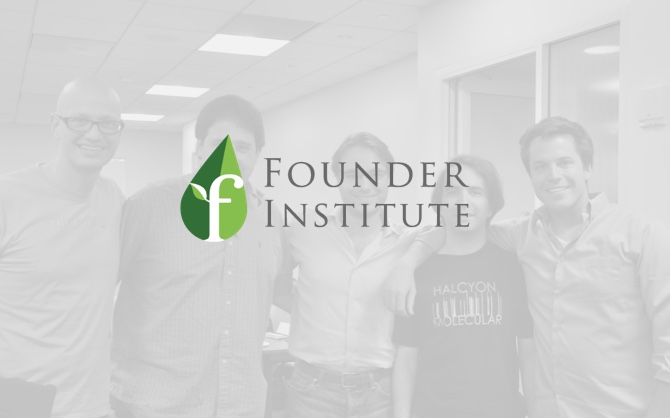
To celebrate Veteran's Day 2021, we are excited to release an updated version of the Veteran Startup Ecosystem Canvas, which is currently in v4 below! It was developed by the Founder Institute and Ryan Micheletti (Head of Global Operations at the Founder Institute, Co-Founder of Vet-Tech Startup Accelerator, and Partner at Shield Corps Security). It lists the prominent resources to help Veterans start companies in the United States, organized by the stage of company.
This is just a draft, and while we spent many hours on this research, more input is needed. Please leave your comments on this collaborative Google document, and it will be considered for the next update.
If you are a Veteran Founder looking to build a startup? Then apply to the Founder Institute today!
Text version included below, for ease of searching:
Startup Stages
There is no one right way to build a technology company, but for the sake of simplicity we have outlined a basic, common, sequential framework.
1. Idea Stage
This is where new entrepreneurs get inspired, learn best practices, develop skills, validate ideas, and begin to build their team and product.
A. Inspire
- Veteran Startup Media: Centralized local information, listings, and news. (i.e. startup blogs/ publications/ lists/ FB groups/ newsletters)
- Inspirational Veteran Startup Events: Open, inclusive startup events that often focus on ideation. (i.e. Startup Weekend, idea fairs, and inspirational meetups)
B. Educate
- Best Practices: Beginner knowledge-sharing tech events. (i.e. beginner events that serve to educate more than inspire).
- Training & Feedback: Skill & Idea development events and startup bootcamps for entrepeneurs. (Includes comprehensive training programs, like Founder Institute, General Assembly, Lean Startup Machine, code camps, etc)
C. Validate
- Team Formation: Events for Finding Co-founders. (i.e. tech networking events or other resources that facilitate early-stage recruitment and cofounder matching)
- Build First Product: Hackathons & product events for Veterans.
- Needs work
2. Launch Stage
In this stage, entrepreneurs establish and formalize the company, develop the product, get feedback from customers, and prepare for the next step.
A. Start
- Establish: law firms & banks for startups
- Veteran Workspaces: Co-working and flexible workspaces for veteran startups.
B. Develop
- Formalize: accounting, development and HR tools for early-stage startups.
- Veteran Incubators: Groups that prepare companies for seed investment and provide advanced mentorship. (i.e. advanced knowledge sharing, later stage events and resources)
- Needs work
C. Launch
- Seed Accelerators: Seed funding mentor programs (Techstars-style programs that provide funding)
- Needs work
- Pitch & Demo Events: Tech events that showcase veteran startups for investment.
- Needs work
3. Growth Stage
Here, a startup proves their utility, receives recognition, and scales up. This usually requires funding, angels, VCs, and ways to connect them to startups.
A. Recognition
- Veteran Investor Networking: Events and groups that connect professional investors with founders.
- Major Media: Mainstream local business press that often showcase local startups.
B. Funding
- Veteran Angel Investors: Seed-stage investors and micro-vcs.
- Veteran Venture Capitalists: Series A and beyond
C. Growth
- Infrastructure: Office space, HR, local business insurance. (i.e. office space/ HR/ insurance providers for capital-rich companies to grow and scale)
- Expansion: Veteran Growth accelerators and consultants. (i.e. programs and business consultants for capital-rich companies to grow and scale)
4. Veteran Startup Success Stories
Successful homegrown companies that have raised significant institutional funding, employ a large workforce, or have achieved liquidity.
Supporters
To facilitate the steps, every ecosystem needs strong supporters.
1. Veteran Startup Leaders
Successful local founders who lead the ecosystem & frequently mentor newbies.
- Akili King
- Blake Hall
- Bow Rodgers
- Craig Newmark
- David Muir, Jr.
- David Rambhajan
- Dawn Halfaker
- Jack Cox
- Kelly Perdew
- Kevin Fray
- Matthew Thompson
- Michael Beirne
- Ryan Micheletti
- Todd Connor
2. Veteran Government Startup Resources
Public organizations that facilitate local economic development
- Disabled Veteran Business Enterprise Program
- Operation Boots to Business
- SBA Office of Veterans Business Development
- SBA Veteran-Owned Business Portal
- US Chamber of Commerce Foundation
- Veteran Entrepreneur Portal
- Veterans' Business Outreach Center
3. Talent
Major local business or tech universities and employers that attract and retain local talent.
- Local Tech Universities (universities with prominent technical or business programs that support veterans)
- Best for Vets: Business Schools 2015
- Rice MBA Military Veterans Program
- The Citadel
- USC Master of Business for Veterans
- United States Coast Guard Academy
- United States Merchant Marine Academy
- University of Miami Master of Business for Veterans and Active Military
- United States Military Academy (West Point)
- United States Air Force Academy
- Virginia Military Institute
- Tech Employers
Learn more about the Startup Ecosystem Canvas here, and leave us your thoughts on this collaborative Google document (This is just a draft, and more input is needed!)




